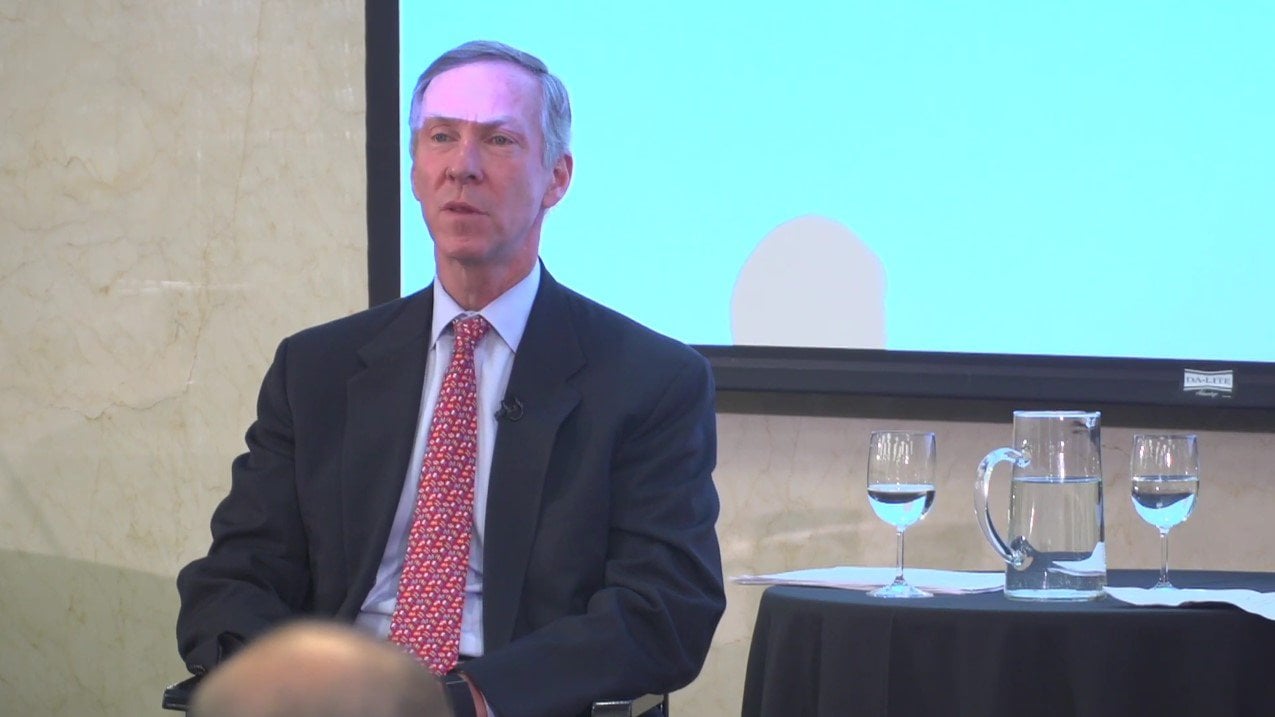The NYU Center for Sustainable Business hosts its second annual Practice Forum entitled, “How to Assess the ROI on Sustainability for Corporate Practitioners and Investors.”
CSB Practice Forum: Fireside Chat with F. William McNabb
Q4 hedge fund letters, conference, scoops etc
Transcript
Let's leap right in because I am not sure what your view is whether from an investment perspective do you think there is a fair favorable ROI on sustainability place.
So that the very short answer is I don't know just you know the data are inconclusive. There is a lot obviously that's been a huge topic here today and you know in many other forums. However the longer answer is I think we look at it the linkage between a call to saleability and this debate between short termism and long term. And you know of reference. You know I worked with CCP on their strategic investor initiative and the whole push there is around getting companies to think longer term and if you think about the broadest definition of. You want to have a company that lasts multiple generations then you. And if you're going to think that way then that's where to me a lot of the work that's being done in this space and the work that we've been doing on the long term is some kind of intersect. And my sense my intuition is we will find that companies that think that way and more holistically will actually create lots of value over time. And you know there's exeat everybody has anecdotal examples of it but we don't have what I would call a comprehensive study that says here it is here's the answer and it's come in as part of it is because the whole definition of sustainability is so broad and can you bring in so many variables. But I do think you know if you just elevated to the highest level of you know what's going on in terms of you know if you're not if you're not a if you're a company and you're not a great place for people to come to work overtime you're not going to provide great service. You're not going to produce as good a product as somebody who is a good place to work if you're not a really good citizen of your community you're not again going to attract the kind of talent that you want. I think you know what's going to be really interesting is to watch. I think it's going to be the employment side that's going to drive this more than anything else. And you know I think investors will have a role obviously I think consumers are obviously going to have a big role. We've seen some of the data on that but I think it's the employment side is going on what is going to be what drives it.
OK. There are a lot of things to follow.
I know I'm telling you kinds stuff.
So well so let's start with so we talked a little bit about this a couple of days ago. And so this is somewhat leading question but you know in terms of whether there is and sustainability plays I mean your subset is limited you know you're taking out some investments so it doesn't that suggest that. That you're really asking investors to take a smaller return to do the right thing.
Again I don't I don't know the answer to that. What we've seen historically is you know if you go back to the days of the original sort of socially responsible investing movement in the 90s many of you as I looked at this audience many of you were far too young to remember that but there are a handful of you who actually lived through that and you know in 1997 1998 1999 the socially responsible index funds as an example and we had one of the first. They were blowing the lights out and everybody was like see you can do good and beat the market in this great while when you did the attributes an analysis what you found is because of the way the exclusionary screens were working most socially responsible funds had an overweight to technology. And we know how that ended in 2001 2002. And in a pretty way and I can't tell you how many investors despite you know you know good literature and whatnot were shocked by that. They just couldn't understand what had happened and the variances were incredible. And so it's an anecdotal answer to your question but I think what you see is there will be times of anytime you exclude stocks certain stocks from a broad market by definition you're going to be out of sync with the broad market you will underperform sometimes and you will over performance sometimes. We have not seen and I'll come back to this one because I think it's going to be one of the most fascinating areas. You know I don't think we've seen any active manager who has put their stamp on a sustainable strategy deliver a long term alpha versus a broad market for a long period of time. I mean it just I think that is one of the Holy Grail sites out there. We're going to try. By the way you know just all Humility aside.






